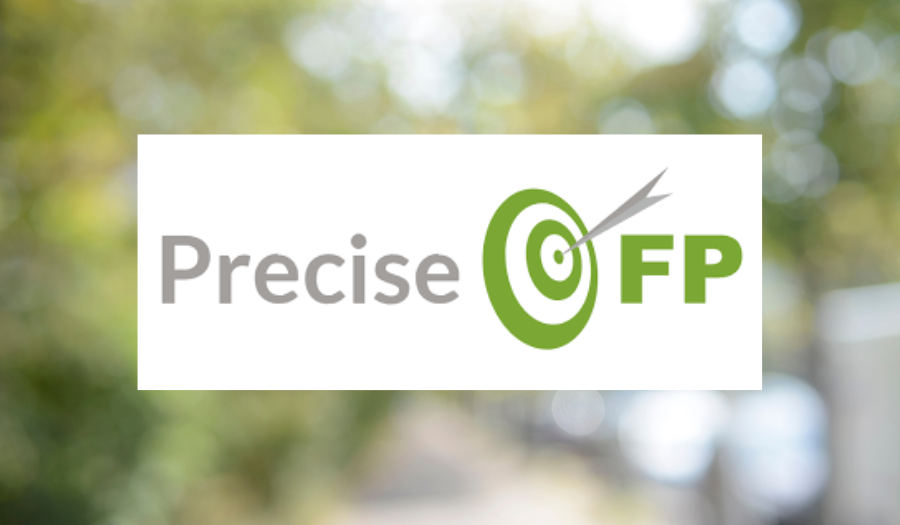How to Build a Social Media Strategy for Your Practice

Do financial advisors need social media? Simply put, yes. Social media is an essential marketing tool for your business. Financial advisors are putting more of an effort into incorporating social media within their marketing plan as more investors, especially younger ones, seek advice online. According to Blackrock, young investors between the ages of 18 to 34 use social media to research investment ideas more than any other resource.
Leap first and ask questions later. Does that sound like your current social media strategy? A lot of businesses fail to see results from social media because they dive in without a plan of action. If you want to be successful, it’s important to build out a strategy to ensure your use of social media aligns with your goals from the start.
How you build a strategy for your business should be simple. Don’t stress. I have four easy steps to share with you that will help you build your social strategy.
Step 1: Define Content Goals
What are you trying to accomplish? These goals should tie to your business objectives (and there may be more than one). A couple ideas to consider: Are you looking to generate more clients? Or are you looking for greater engagement with existing clients?
Be specific about what you want to achieve and make it measurable. Setting a measurable goal will allow you to see what’s working (and what isn’t). if it isn’t working, you can adjust the strategy as necessary. A few common goals include:
- Impressions – the number of times your content/ad is displayed. This is different than clicks and reach.
- Engagement Rate – this metric defines how well your audience is interacting with your content
- Followers – this refers to the people who have subscribed or chosen to “follow” your specific page/account on a social media channel
Step 2: Identify Your Audience
Do your research. Is there a specific age, demographic, or lifestyle behavior you’d want to target? Identify and know who your audience is before jumping in.
Start with audience demographics (age, gender, occupation, education, geography) and then look at lifestyle traits and what channels they might be using most often. Asking these questions will help you better define what channel you would spend your time on and what type of content you should create. Perhaps you want to mirror an audience based on your top clients. Why not ask them what channel they use most often?
Step 3: Evaluate Channel Opportunities
The right approach starts with investing in the right channels instead of trying to be everywhere aimlessly. You don’t need to be on every channel. Evaluate the possible social channels that your audience spends the most time. Rather than spreading yourself thin across multiple channels, focus on picking one or two channels where your audience is most actively engaged, and your content aligns with that channel’s strengths.
A few examples of channels and their content strengths:
- YouTube is a video-based platform where people often go to learn something new. It’s great for educational and thought leadership content.
- LinkedIn is a professional network platform which supports a content mix with text (both short and long-form) and video. You’ll see blogs/insights, industry trends, and professional networking.
- Facebook supports a content mix, like LinkedIn, but videos and visual/imagery performs the best. The audience capabilities are extensive with a large demographic actively engaged on this platform.
Remember: Don’t choose a platform for video or text if you don’t like to record video or write insights. You will be less effective in meeting your goals if you choose a channel that doesn’t align with your strengths. There are so many options out there, so choose what’s best for you. You can always start small and master one or two channels to establish a presence before adding multiple channels.
Ask yourself: What social channels help you meet your goals, can be achieved, AND stay within your budget?
Step 4: Document Your Strategy
Now that you’ve researched and planned (Steps 1-3), distill your learnings and write down the details of your strategy. Specify what channels you’re planning to use and focus on the established goals. Share this document with anyone who supports you and establish a regular schedule for reviewing your progress. This discussion is important because you can collaborate and work together to ensure you’re aligned with the strategy and achieving success. These check-ins will help you evaluate performance and make necessary adjustments to your strategy. Remember, the social media landscape is dynamic, so flexibility and adaptation are key to success.
Interested in learning more? For a more detailed approach to building your LinkedIn marketing strategy, take a look at our article "15 LinkedIn Marketing Tips for Financial Advisors".
Author Info

Allison Warner is the Corporate Marketing Director at USA Financial, where she leads the development and implementation of corporate...
Related Posts

Increase Tech Efficiency in Your Advisory Practice: FutureVault
In today’s fast-paced, digitally driven world, financial advisors need tools that not only streamline operations but also enhance client engagement and security. One tool leading the charge in advisor efficiency is FutureVault, a secure digital document vault solution designed specifically for wealth advisors.

Technology That Can Help You Get More Clients: PreciseFP
In an industry where every minute counts, financial advisors need tools that can enhance productivity and simplify workflows. Whether you’re focused on growing your client base or deepening existing relationships, having access to the right financial advisor technology is key to building a streamlined, client-centered experience.

4 Biggest Financial Advisor Marketing Trends for 2025
In recent years, industries have undergone transformations which have compelled businesses to adapt and innovate in order to remain competitive. For example, the rapid advancement of artificial intelligence (AI) has transformed our digital landscape over the past year. As marketers, it's crucial to adapt to change and stay ahead of the competition. This means being constantly aware of emerging trends, technologies, and customer behaviors.

Increase Tech Efficiency in Your Advisory Practice: FutureVault
In today’s fast-paced, digitally driven world, financial advisors need tools that not only streamline operations but also enhance client engagement and security. One tool leading the charge in advisor efficiency is FutureVault, a secure digital document vault solution designed specifically for wealth advisors.

Technology That Can Help You Get More Clients: PreciseFP
In an industry where every minute counts, financial advisors need tools that can enhance productivity and simplify workflows. Whether you’re focused on growing your client base or deepening existing relationships, having access to the right financial advisor technology is key to building a streamlined, client-centered experience.

4 Biggest Financial Advisor Marketing Trends for 2025
In recent years, industries have undergone transformations which have compelled businesses to adapt and innovate in order to remain competitive. For example, the rapid advancement of artificial intelligence (AI) has transformed our digital landscape over the past year. As marketers, it's crucial to adapt to change and stay ahead of the competition. This means being constantly aware of emerging trends, technologies, and customer behaviors.

